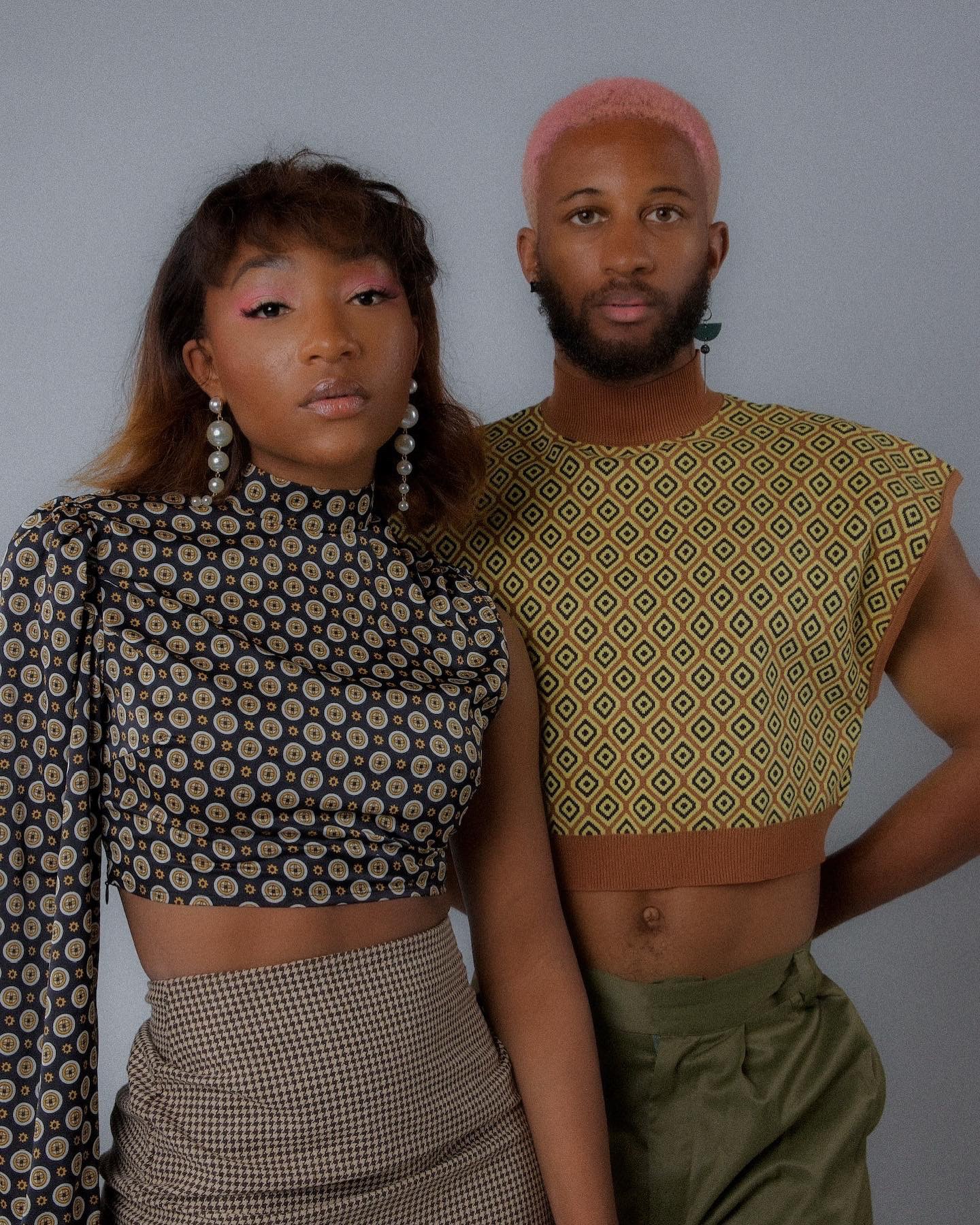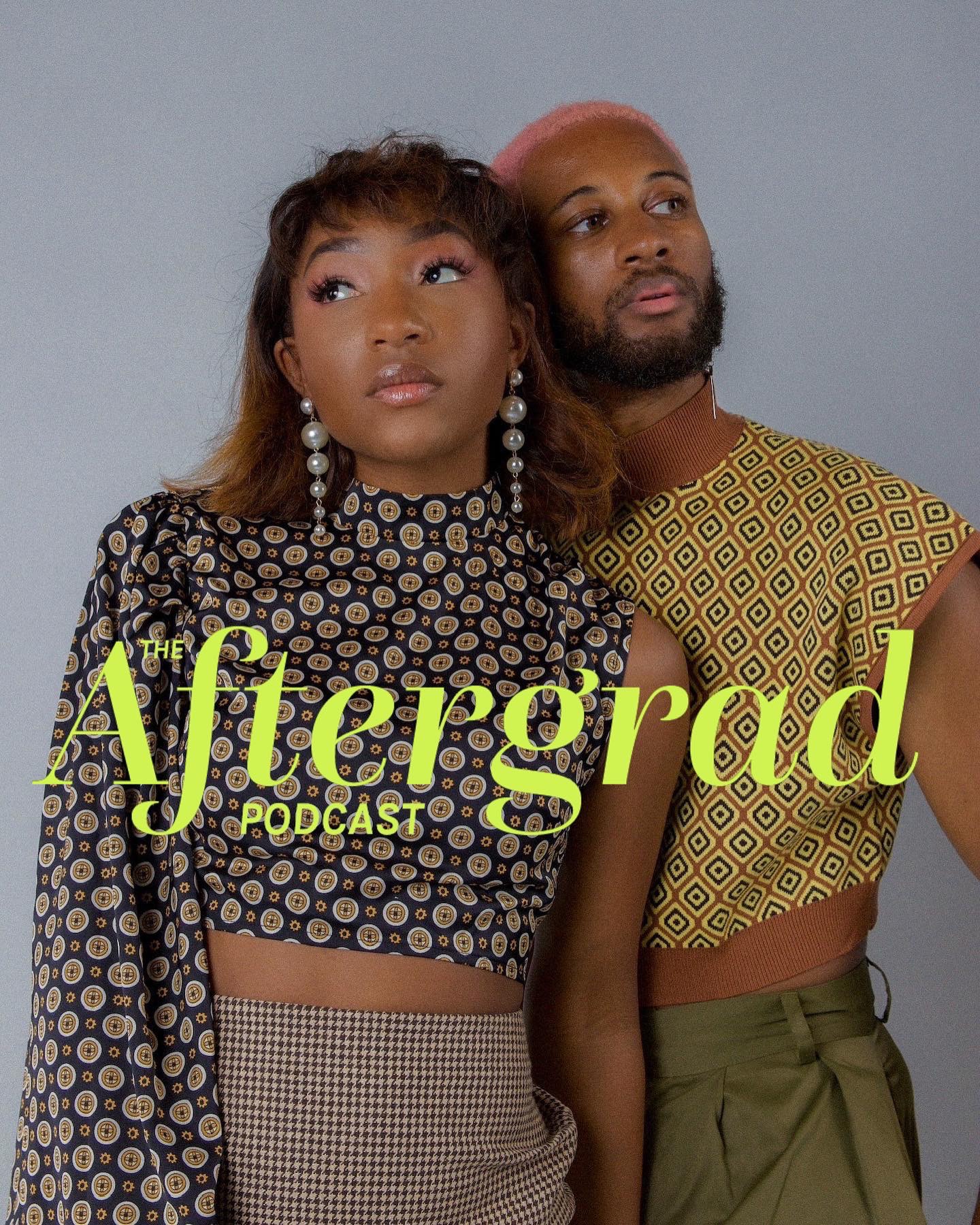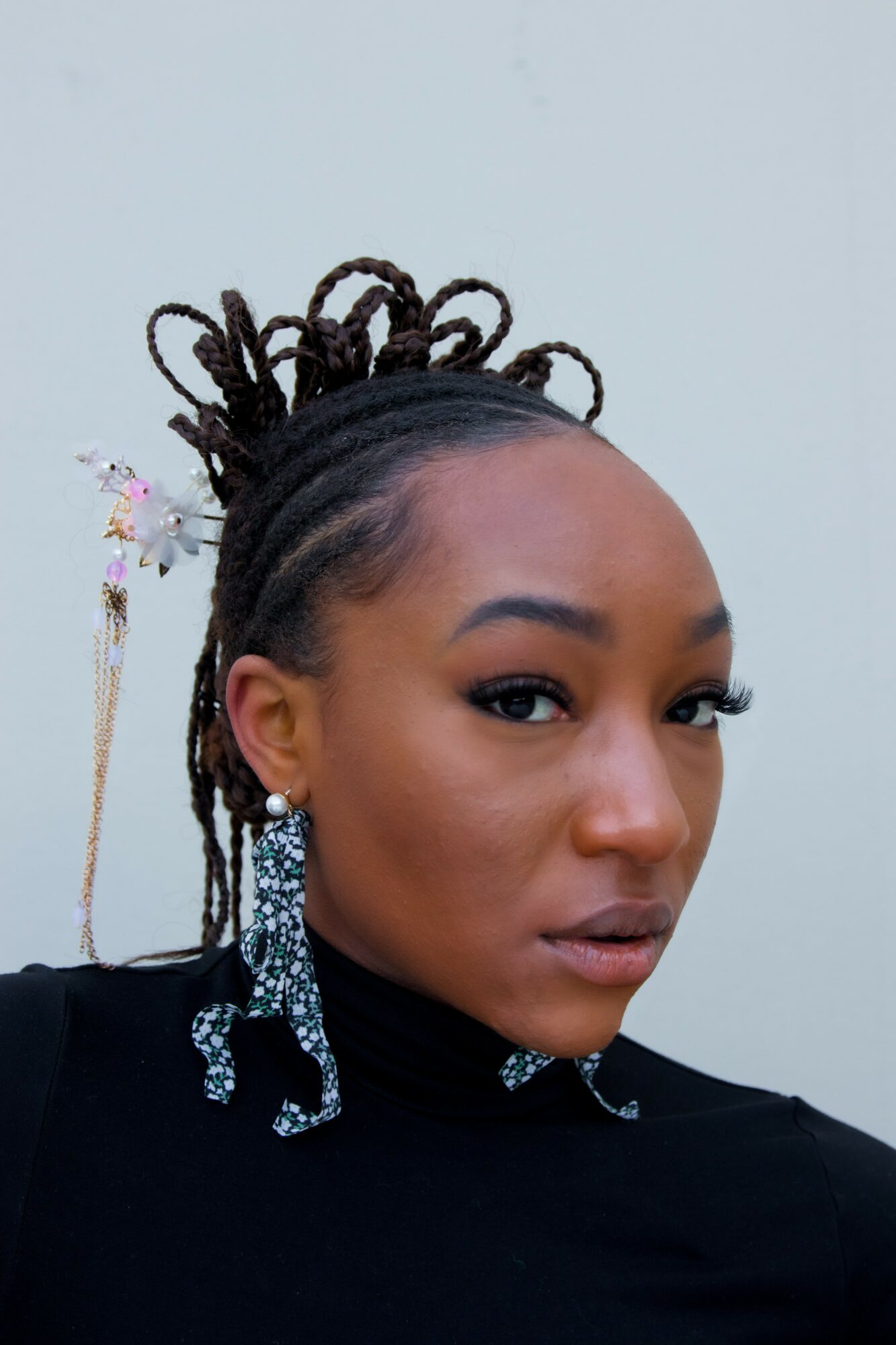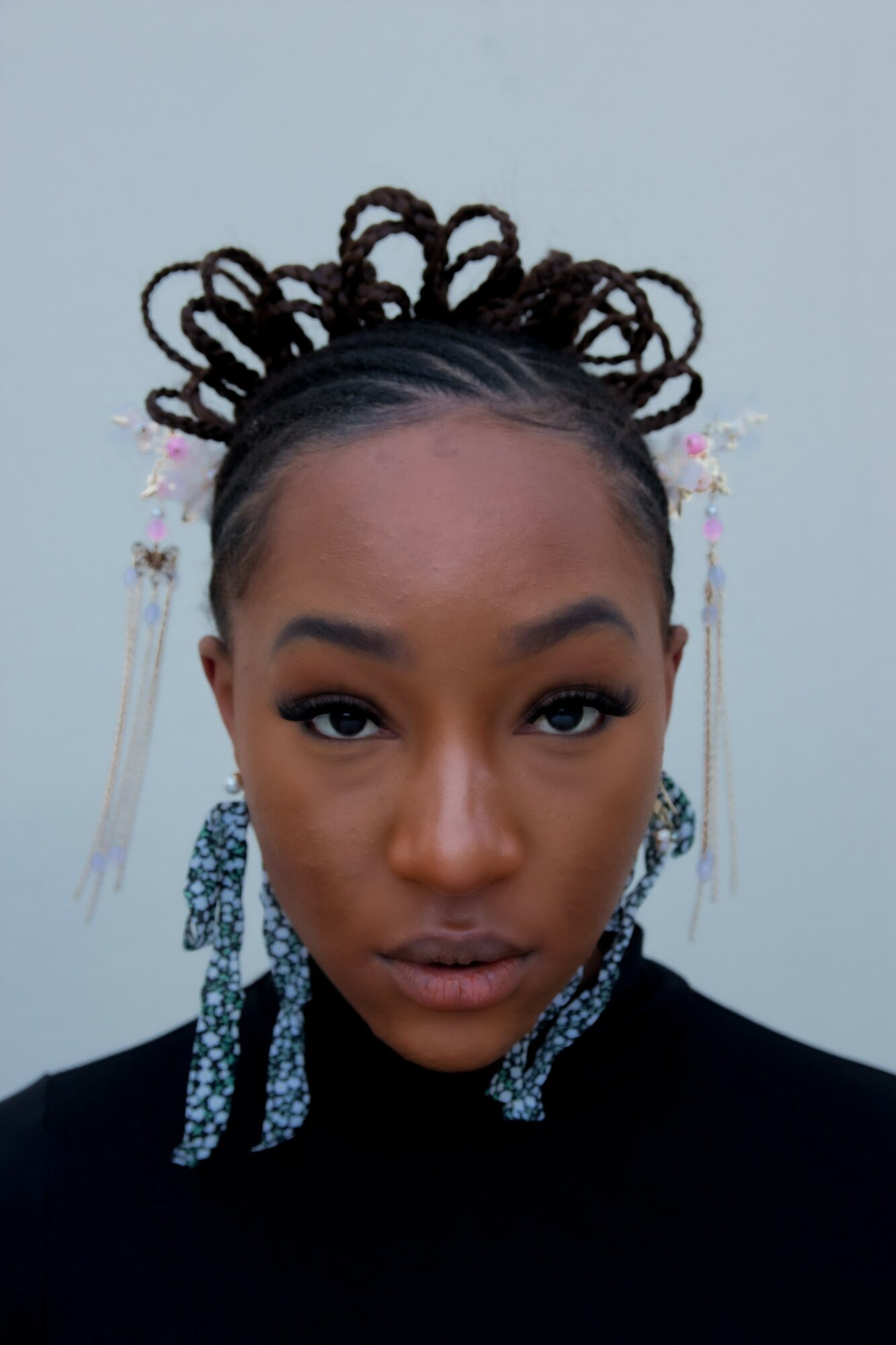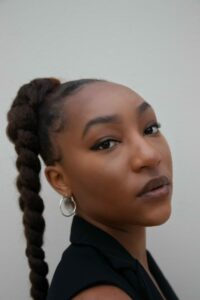
Today we’d like to introduce you to Victoria Gilbert.
Hi Victoria, we’d love for you to start by introducing yourself
I was raised in Oak Cliff, a place many deemed “the hood” due to negative media portrayals of violence, poverty, and danger; but this area was my safe haven. In Oak Cliff, I was cradled by my people, church home, and family of entrepreneurs, political figures, business owners, artists, non-profit leaders, and doctors who dedicated their work to uplifting my home, contrary to the systemic adversities that degraded, abandoned, and ignored the community. The education system was one of the disadvantages in the community my family fought to improve. Unfortunately, my parents faced the reality that the schools nearby didn’t ensure all components that make up a nurturing learning space would be provided. As a result, my parents scouted George Bannerman Dealey Montessori Magnet, a school considered a hidden gem in the Dallas Independent School District. The application process took over a year in which we attended orientation, navigated events, created our portfolios, and stood in lines that wrapped the building awaiting early submission. After these extensive requirements, children were evaluated and interviewed to distinguish which child would be accepted to attend. Through it all, my parents’ diligence paid off, and I was accepted into Dealey. For the next eight years of my life, I’d commute forty-five minutes north from my safe haven to attend a school who saw something in me that I was unaware of at the time. However, I was aware that I was suddenly the only African American girl when I stepped foot into my kindergarten class.
Many found me extremely shy, but I was reserving parts of myself because I felt the need to hide who I was, in fear I would be misunderstood by those different from me. Being uprooted from my home grew anger, insecurities, and feelings of alienation in who I was. My next eight years at the school I assumed my existence was meant to meet the affirmative action quota. After every morning bell, we stood to recite the school’s mission: “providing an exemplary education that develops and empowers all students to become productive citizens in our global society.” Eventually, I grew accustomed to the global perspective this school encouraged but at times battled answering what actually made me stand out besides the color of my skin. This subconscious mentality lingered until the day I realized what they saw in my pre-enrollment evaluation.
The day I was evaluated for enrollment, an instructor gave me twenty minutes to do whatever a four-year-old pleased while observing how I would respond to my surroundings. I took pleasure quietly placing myself in the middle of the floor, taking plastic animals, feeling their shapes, observing their sizes, then proceeding to line them up –spaced to my best ability– in a straight line across the room. I now highlight this seemingly small, early account of life because I am reminded of who I am: a meticulous, observant, and ingenious child at heart, who approaches things with delicacy without disturbance of peace while creating order out of chaos. This mentality remained as I envisioned pursuing a career venturing exchange of creativity internationally. The foundation of my education drove my initiative to serve my values in making an income while making an impact. I am grateful for the opportunity to receive this Montessori education where I was given the freedom and independence to explore what I gravitated towards. Without this platform for exploration for me to imagine the unthinkable, ruminate with the ideas, and take action, I may have envisioned something different that could have altered this story.
I was always drawn to the ingenuity of sculpture, design, fashion, and media and intrigued by the ways in which these artistic mediums influence how we perceive reality. At seven, I discovered the art of Chinese calligraphy I found in a children’s book. My curiosity became an unfading desire to self-teach Mandarin. My younger self internalized this language and culture as a difficult puzzle and grew committed to learning more and discovering the missing pieces. Later, I attended a STEM High School, where 3-D printing grew my appreciation for designing digital dimensional models via Adobe software. By senior year, I started looking at colleges and decided business was worth pursuing as a career and area of study. Inspired by the entrepreneurs in my family, who made a profit while investing in others to strengthen a community, I desired to further explore the craft. However, I was unsure how these creative outlets could serve a specific purpose in my future. Exploring all facets of myself by getting business, culture, and design to coincide seemed unrealistic. I felt a constant battle tending to all versions of myself; none of which I felt was worth sacrificing.
By college, I was persistent in keeping all of my entrepreneurial, cultural, and creative facets alive. So, I attended Austin College, a liberal arts institution in Texas, where I double-majored in International Economics and Finance and East Asian Studies with a concentration in Chinese and a Minor in Art. I envisioned making global change using the complexities of international business, art, and culture. Under the nurturing guidance of mentors, I was pushed to figure out how to solve problems using these disciplines. Over the course of four years, I was challenged to dig deeper –addressing my weaknesses and sharpening my strengths– which helped grow my confidence and recognize the actions I had to take in order to evolve into the person I will become. I owe it to my mentors who pushed me to discuss, draft, write, re-write, and speak my ideas into existence which molded my niche into a platform I’m actively building.
I have so much gratitude for these academic stages in life getting me to where I am today. Now I hold myself accountable to remain curious and persistent in learning more about my craft. This transformative process precipitated a desire to help others do the same. My story is nowhere complete, and I’m far from being an expert but from my personal journey, I grew values spiritually, mentally, and physically that I desired to share. As a young woman from a generation of dreamers facing the hardships of graduating during a pandemic, I used this moment to practice stillness and experiment how I could design a space that welcomes failing, learning, and self-discovery without the undergirding of an institution. Thus, after multiple conversations with my best friend, Robert Cain, we launched The Aftergrad Podcast. On this platform, you will find my story is still a work in progress but as I share the experiences that shaped me, I’m building a community of individuals who also desire support along the unknown journey. I’m excited to see what unfolds while continuing to serve my younger self and the vision she created.
I’m sure you wouldn’t say it’s been obstacle-free, but so far would you say the journey has been a fairly smooth road?
My mother, a Peace Corps alumna, teacher, and now Diversity Director of an elementary school, stressed the importance of global accountability in the household. My upbringing incorporated global traditions and ideals that shape who I am today. I grew up encouraged to speak other languages, travel, and gain truth from personal explorations. In our home hung “The Golden Rule,” a painting by Norman Rockwell that read “do unto others as you would have them do unto you.” Unfortunately, growing up, I realized not everyone lived by this philosophy. From navigating professional tennis, predominantly white academic institutions, and now East Asian regions, I have challenged myself to learn more about others with the presumption that they would learn more about me. Growing up, I was conscious of the obstacles my parents underwent for me to occupy these spaces, and I was also aware of the negative stereotypes surrounding me being a black girl. As a result, I often struggled to be understood when placed in environments that lacked diversity. Internalizing the Golden Rule espoused by Norman Rockwell infused an optimistic outlook that helped me cope with the dichotomy of my circumstance: the desire to understand others while constantly being misunderstood.
I grew comfortable being the only minority amongst the majority and felt ready to test my tolerance after being chosen as a Critical Language Scholar in China. Pre-departure, we were prompted by many seminars, resources, and personal mentors in preparation for the ‘cultural shock’ but not everything was as smooth as I imagined it would be to learn the customs of another culture. I was staggered by the microaggressions directed at me by countless natives. My personal boundaries were invaded as they took liberties, touching my hair, taking pictures of me, and rubbing my skin. In addition to these experiences, relinquishing my right to speak English was uncomfortable especially when I was expected to meet the standard communication mode with my small Mandarin vocabulary. This trip could have turned into a miserable experience if I had not chosen to apply the Golden Rule as I explored East Asia.
Over time, I grew confident in my differences because I saw how they added to the collection of perspectives and ideas. As a result, I’ve had the privilege of experiencing the beauty of other cultures, and now I look forward to making this experience accessible to everyone. Accepting my struggle as an opportunity to alter people’s perspectives shifted my focus towards a bigger picture. It’s my lifetime mission to dismantle cultural barriers by highlighting cross-cultural creativity because it has the potential to influence, reach, and change people’s global awareness in order to ignite innovative ideas for elevating humankind.
Upon return, I was sponsored by both the Humanities and Business departments of Austin College. Through independent research and courses, I observed the declining global flow of ideas, opinions, and perspectives. Studying the effects of China Traded-War, Umbrella Movement, and Covid Pandemic, I was disturbed by the disinterest, alienation, and mistreatment taken against groups of minorities who were also misunderstood and pre-judged by their cultural associations. Under the guidance of mentors, I explored the fundamental concepts of globalization to theorize ways to change people’s perspectives and build an inclusive environment using what I love. The divide between groups of people resembled racial struggles I faced only now occurring at higher stakes. Thus, promoting a more efficient and ethical international exchange of soft power has been my chosen vehicle in overcoming the common struggle of understanding another culture.
Thanks for sharing that. So, maybe next you can tell us a bit more about your business?
I am still actively learning another language, advocating globalization, and covering creative inventions, with the aspiration to connect the world to China and improve perspectives, social justice, and respect for all minorities via decentralized investments as a venture capitalist. America depends on a large number of resources from this area of the world, but many of us have yet to learn about the beautiful people, culture, and languages that these resources are home to. As a result, I’m observing the overlooked opportunity to elevate worldwide creativity, business, and inventions. My culture has experienced such hardships; therefore, I want to be at the forefront of normalizing diversity so we can then focus on the issues that affect the collective.
In college, I conducted quantitative and qualitative studies regarding US-China foreign relations. With the sponsorship from both the business and humanities departments, I wrote “Innovation vs. Imitation,” a thesis that questions whether or not innovative fashion designs produced in East Asia have a discreditable reputation due to the People’s Republic of China (PRC) mass production of counterfeited fashion designs. My work shows evidence of China’s ability to produce original designs that can compete with the fashion capitals of the world. I hope to change my audience’s perception of the PRC’s art, fashion, and media industry capabilities. Over time, my academic pursuits have matured my research and developing financial strategies. Now, I manage public platforms that host my advocacy for improving the interdependency of multinational corporations so that innovative inventions can exchange fairly across borders to enhance economic welfare. Recently, I launched a website to continue and extend these concepts beyond the scope of fashion.
My platform breaks down the complexities of trading creative goods and services between the United States and China. I am exploring cryptocurrency as a solution to the issues surrounding the international distribution of innovation. The beginnings of my work involve a focus on the global trading of textiles, apparel, and design. However, as my journey continues, I look forward to applying these approaches, formulas, and models to multinational corporations that operate across various creative industries.
I recently reunited with a long-lost friend, Robert Cain, a fellow recent graduate also setting out on an unconventional career path. While navigating our unforeseen path, we launched The Aftergrad Podcast to reveal the truths of this awkward stage. Our platform speaks out on normalizing the narrative of uncertainty aimed at recent graduates who may not know what’s next. We believe it’s a work in progress that will eventually come to fruition. On the podcast, we share our experiences in the midst of the unknown to bring awareness to the societal pressures that may mold people into inauthentic versions of themselves. We aim to expose the realities after undergraduate studies so listeners may become knowledgeable of emotions, events, and encounters that come during this transformative season. By making the unknown seem less daunting, we hope individuals will conjure the courage to give themselves the chance to write their own story and commit to witnessing its reality.
Are there any books, apps, podcasts, or blogs that help you do your best?
Throughout my life, I’ve adored the testament of Queen Esther, issues from Vogue Magazine, the movie Molly’s Game, albums by Beyonce, the book Becoming, and the TV series The Queen’s Gambit. These bodies of work have propelled me to do my best work. In moments of doubt when questioning how others might perceive my appearance, character, or actions, I looked to the stories told by these women for assurance that I can exist in male-dominated environments. Although these projects span a wide range of mediums, they each capture the narrative of a woman doing the unthinkable and occupying alternative spaces. I appreciate the realities they share managing their mentalities, health, and morals. Using their God-given talents, they became successful within unconventional territories. Through it all, they remained unapologetic in their manor, intuition, and confidence while in the presence of others. Seeing this uproar not only through these narratives but also within the women in my life, I am encouraged to do my best in contributing to this movement. If it wasn’t for the circle of fellow young women praying for me and pushing me, and supporting me to follow my uncertain path, this would be a lonely journey. As I continue, I hope my story will encourage other young women to pursue fields in ‘Science, Technology, Engineering, Art, and Math’ (STEAM). We should dare to change these industries.
- Email: hello.victoria.gilbert@gmail.com
- Website: https://victoriastargilber1.editorx.io/my-site-1
- Instagram: https://www.instagram.com/victoriastargilbert/
- Twitter: https://twitter.com/aftergradpod
- Youtube: https://www.youtube.com/channel/UCn5tjJnFd5dmLltdsCF38HA
- Other: https://theaftergradpodcast.editorx.io/theaftergradpodcast/about
